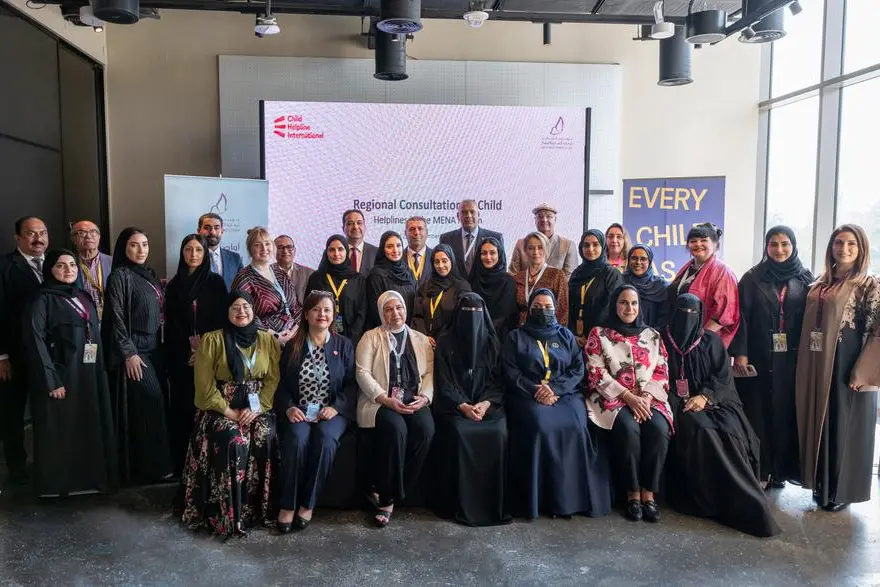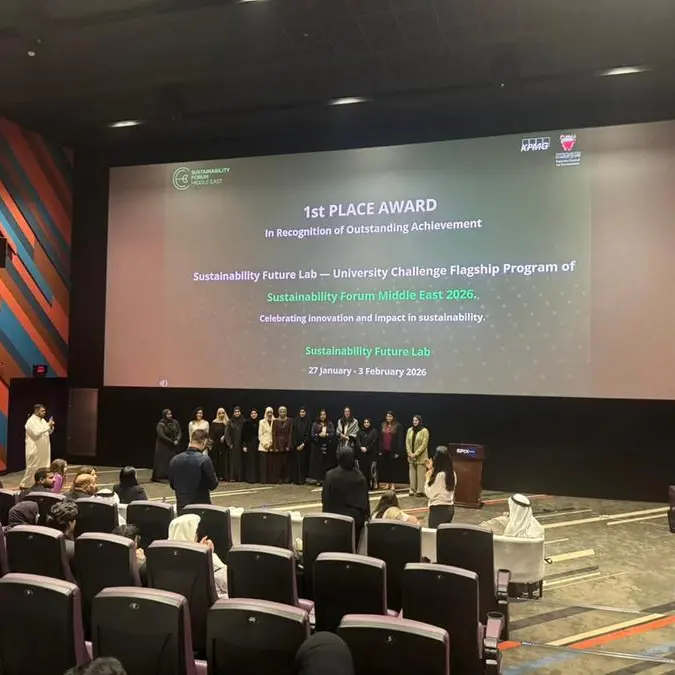PHOTO
Dubai, UAE: The Dubai Foundation for Women and Children (DFWAC), in collaboration with Child Helpline International, wrapped up the 'Regional Consultation on Child Helplines in MENA 2024' on Thursday, concluding the event with 13 key recommendations aimed at strengthening child protection efforts across the region.
The meeting brought together more than 70 representatives from child support organizations, along with local and international agencies, civil society institutions, and government officials from across the region, to address the growing challenges facing children amid ongoing crises and to develop strategies to protect their rights.
The recommendations highlighted the need for universal access to child support lines to ensure that every child in the region has access to the psychosocial support they require, in line with the goals of the United Nations Convention on the Rights of the Child.
The recommendations also stressed on the importance of providing every child with free, unrestricted access to helpline services, enabling them to confront challenges and access necessary support. Additionally, the recommendations highlighted the need to encourage regional networking and collaboration among relevant countries and institutions to secure sustainable funding for expanding helpline services, particularly in areas with limited child protection resources.
The meeting further emphasized the importance of investing in a robust, integrated infrastructure that includes multilingual services and diverse communication options, ensuring continuous access to helplines for all children, including those with disabilities, migrant children, and other groups requiring special care.
Specialists noted that such infrastructure enables children to access support anytime, anywhere, enhancing service efficiency and ensuring timely assistance during critical moments. Participants also advocated for standardized child helpline numbers across the region to simplify access and raise children's awareness of available support, especially during crises requiring immediate assistance. They reaffirmed the need for stable, long-term funding to ensure the sustainability and quality of helpline services, maintaining their effectiveness in meeting the evolving needs of children.
The recommendations also highlighted the necessity of adopting strong governance practices to ensure high-quality and transparent service provision. This includes implementing comprehensive training programs for staff and volunteers according to the quality standards set by the Child Helpline International, along with activating contingency plans to ensure continuity during crises. Participants also reaffirmed the need to invest in effective data practices that enhance service quality and adaptability to emerging challenges.
To strengthen the role of youth in policymaking, participants emphasized the importance of amplifying the voices of children and young people, using helpline data as a powerful tool to protect their rights and promote their well-being. The recommendations called for engaging youth in decision-making processes related to child protection, recognizing their participation as essential to ensuring policies are responsive to their needs and aspirations.
The meeting outcomes also highlighted the need to enhance the regional child protection system by bolstering advocacy efforts and integrating hotline data into decision-making processes, while prioritizing children’s participation in these processes.
Decision-makers were urged to support hotlines and invest in the safe and reliable collection, analysis, and sharing of data to develop evidence-based policies for maximum impact.
The recommendations further emphasized the importance of building effective regional partnerships to eliminate violence against children in the MENA region, in alignment with SDG 16.2, which aims to end all forms of violence, including abuse, exploitation, trafficking, and torture.
Achieving this goal requires implementing strong policies and programs, strengthening legal frameworks, providing psychological and social support, and raising community awareness of children’s rights and protection needs. Establishing integrated support networks, clear referral pathways, and facilitating knowledge exchange among relevant stakeholders will enhance both prevention and response strategies to safeguard children from violence.
Participants stressed the need for collaborative funding to support frontline services and data collection to strengthen helplines' capacity to meet diverse needs and protect vulnerable children. They highlighted the need for greater collaboration to expand helplines' capabilities in response to rapid technological advances, which offer new opportunities but also bring challenges to child safety.
The recommendations also advocated for adopting case management as a model for helplines in the MENA region, ensuring evidence-based practices, and enhancing service quality by providing timely, high-quality support for children.
Finally, the recommendations called for investing in artificial intelligence and advanced technological tools to bolster child protection efforts. These technologies can improve the efficiency of the regional child protection system, enable helplines to respond swiftly and effectively to emergencies, and ensure continuous support for children at all times.
H.E. Shaikha Saeed Al Mansouri, Acting Director General of the Dubai Foundation for Women and Children, emphasized that the foundation is committed to supporting children’s rights and creating a safe environment for them in collaboration with regional and international partners, aiming to develop a comprehensive and sustainable child protection system in line with the leadership’s goals of creating a secure environment for children in the region.
Al Mansouri added that DFWAC is optimistic that the meeting will yield effective initiatives, innovative ideas, and actionable recommendations to enhance child protection across the region, in alignment with the leadership’s vision for a safe and sustainable future for children.
The regional meeting comes at a critical time, as children worldwide face escalating crises, including food insecurity, health challenges, armed conflicts, and climate change. These multiple, overlapping crises negatively impact their lives, increasing rates of violence against them and lowering mental health indicators.




















